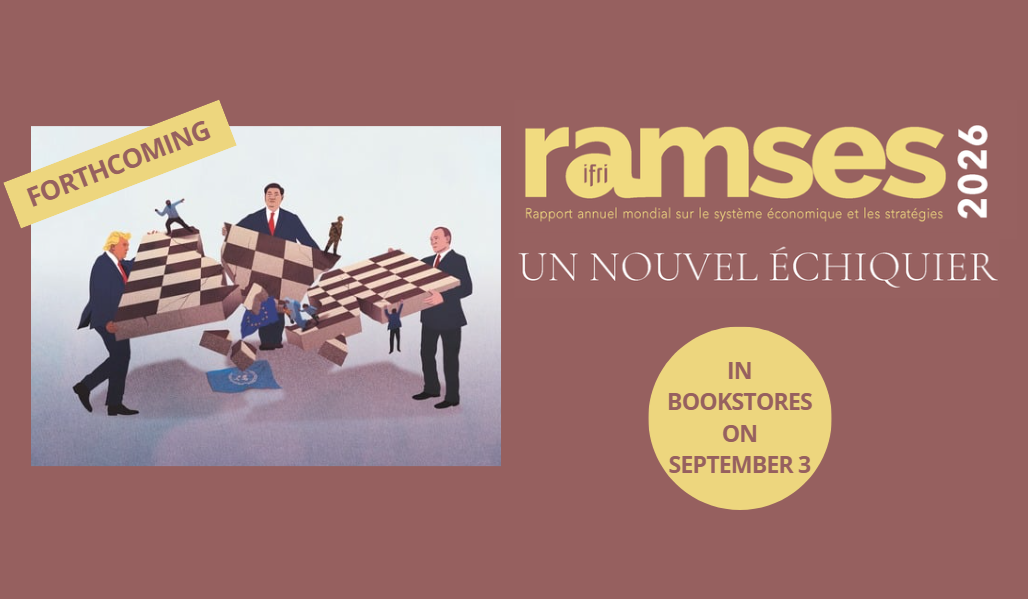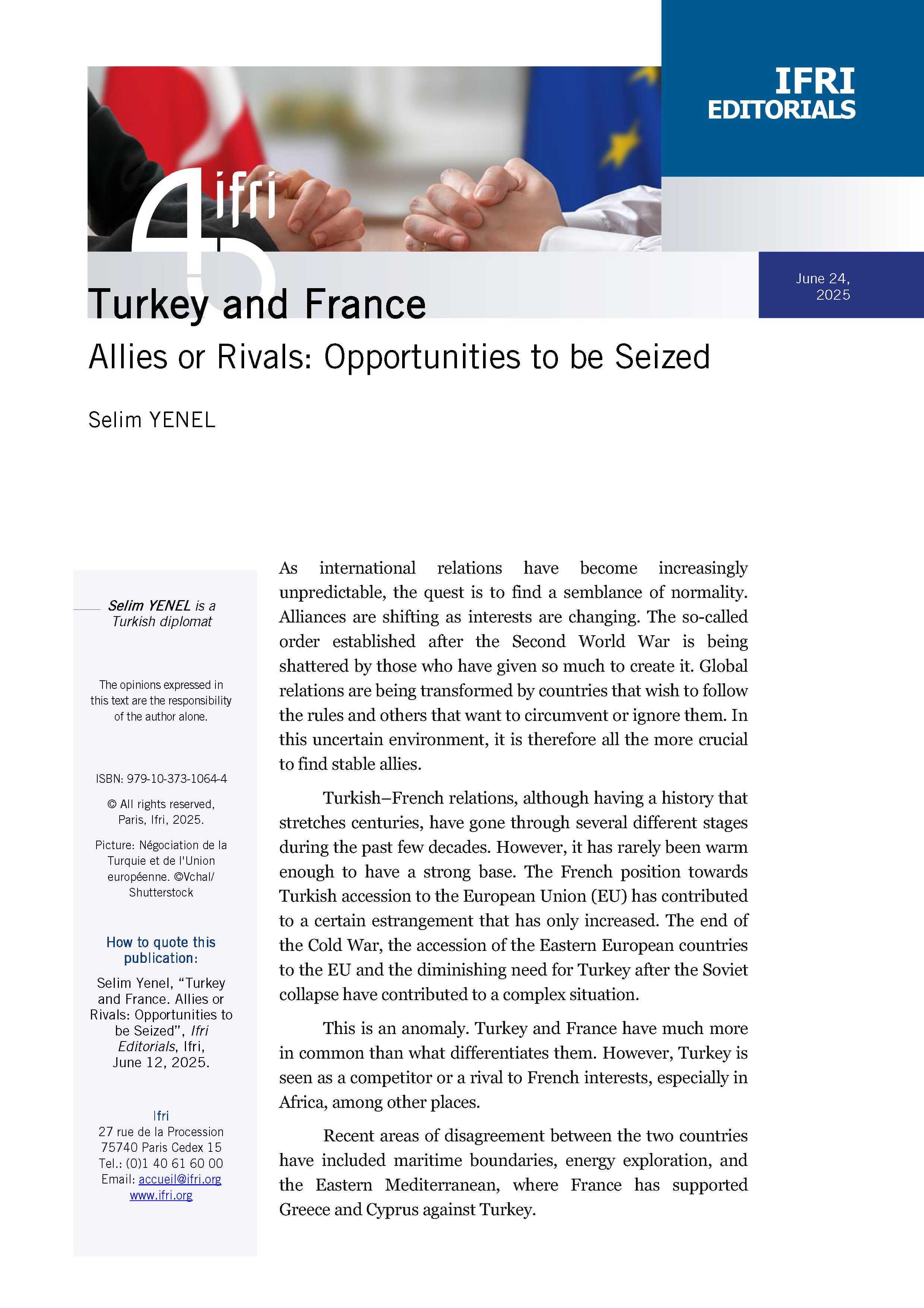Security - Defense
As a result of global strategic competition, security and defense issues are marked by the return of major wars and nuclear deterrence, the transformation of terrorism and the race for military technologies.
Related Subjects

Ramses 2026. A New Chessboard

A world chessboard chopped up by the vertigo of power...
Unmanned Air Systems: The Future of Air & Sea Power?
Since their early use for primitive ISR and combined operations, UAS have developed into increasingly multipurpose instruments performing a wide array of missions (from limited strike operations, search and monitoring to time-sensitive targeting) and offering new maneuver options to the armed forces.
The Return of Robert Gates
The memoirs of public men are exercises in self-promotion and self-justification. They are designed to etch a portrait of the (wo)man that will live across time. It's the legacy thing. These days, that legacy pertains also to the "here and now" since memoirs are not necessarily the conclusion of a career but rather the curtain-raising on its next act.
Political and Economic Effects of Qaddafi's Death on Chad
On 24 August 2011, President Idriss Déby Itno of Chad recognised the National Transitional Council (NTC) as the only legitimate authority in Libya. Until then, the Chadian president had been a firm ally of the Guide of the Great Jahamiriya, President Qaddafi of Libya. Déby had sustained his long-time friend and helper with military equipment and soldiers from Chad from the beginning of the uprisings.
China's Nuclear Idiosyncrasies and Their Challenges
In many respects, the People’s Republic of China’s nuclear arsenal and posture appear unusual to Western eyes. From its “No First Use” policy to its nuclear warhead storage system, Beijing appears to think about nuclear weapons and their strategic effects in a way that differs with the West in general, and with the United States in particular.
La fin du régiment ? Trente ans de déstructuration de l'organisation tactique régimentaire
The new organization of land forces breaks with a centuries-old tactical order: the regiment. Born out of political constraints that have shaped its history, the regimental order has accompanied the rise of the nation state; the Third Republic, for instance, entrusted it with political, social, and cultural functions.
La fin du régiment ? Trente ans de déstructuration de l'organisation tactique régimentaire
Drones-tueurs et éliminations ciblées : Les Etats-Unis contre Al-Qaïda et ses affiliés
Armed drones - as they enable targeted killings - are henceforward playing a central role in American counterterrorism.
The Baltic Forum 2013
Significant changes in global and regional energy supply and demand, as well as their influence on the political decision-making determine the need to restore proper expert analysis of problems and development perspectives.
Traffic streams, especially energy resource transit, are directly subordinate to the changes in the relations between the countries of the world. Logistics cannot be considered in isolation from the international security and energy policy.
The ensuring of Euro-Atlantic security to the countries and country groups in the surrounding turbulent world is one of the most important and topical issues for joint consideration.
The IDF on All Fronts: Dealing with Israeli Strategic Uncertainty
Facing threats on all its borders as well as social, economic and religious tensions, the Israeli Defense Forces (IDF) are now under significant pressure in accomplishing their core mission: the survival of the State of Israel.
Le Pentagone face à la séquestration et aux sorties de guerres : l'art du brouillard budgétaire ?
The U.S. defense budget has faced a sharp reduction since 2010, linked to the drawing down of two wars and the Great Recession.
Support independent French research
Ifri, a foundation recognized as being of public utility, relies largely on private donors – companies and individuals – to guarantee its sustainability and intellectual independence. Through their funding, donors help maintain the Institute's position among the world's leading think tanks. By benefiting from an internationally recognized network and expertise, donors refine their understanding of geopolitical risk and its consequences on global politics and the economy. In 2024, Ifri will support more than 70 French and foreign companies and organizations.














